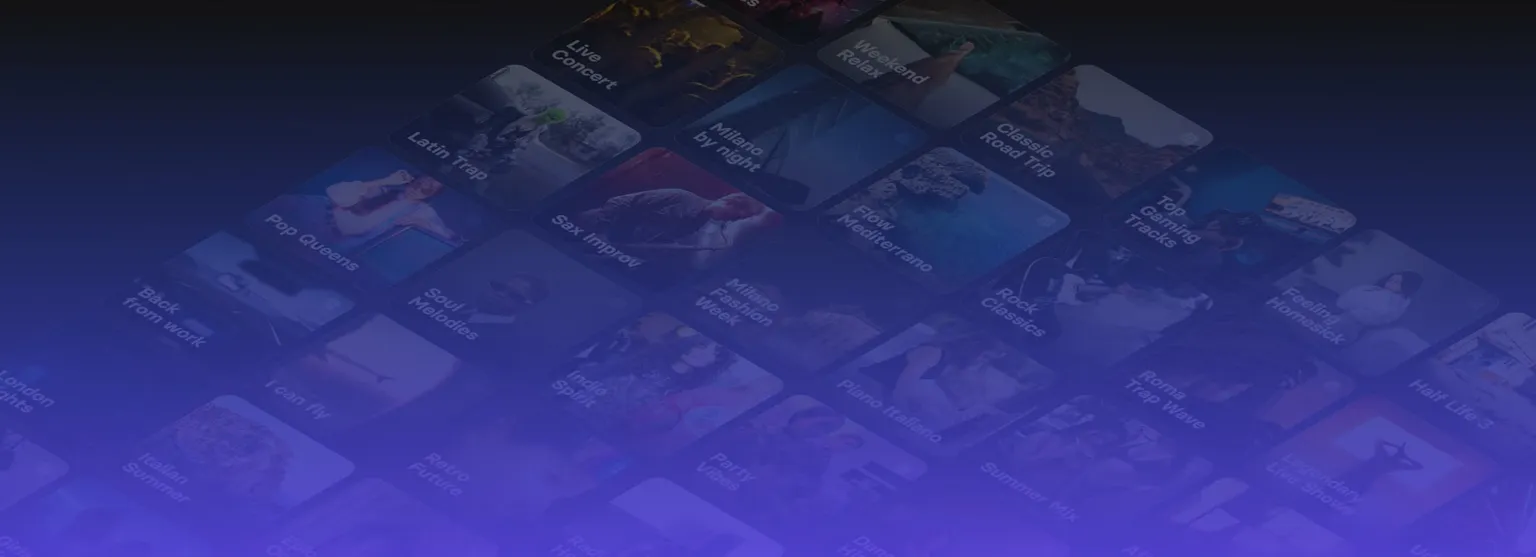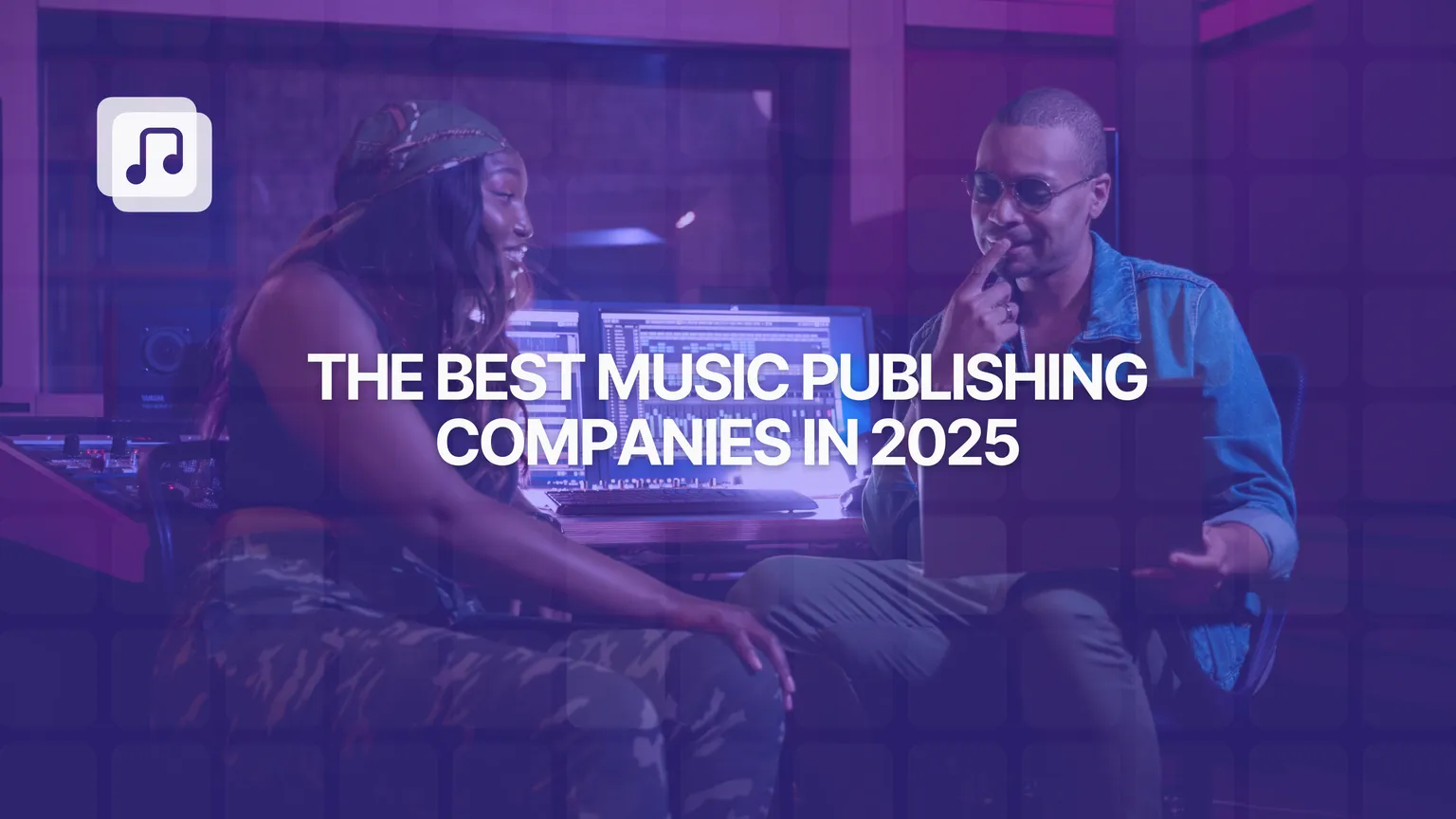
If you're a songwriter, producer, or composer aiming to make a living from your music, finding the right music publishing partner is essential. In today’s music industry, publishing companies do more than just collect royalties—they help protect your intellectual property, pitch your music for film and TV placements, and guide your career toward long-term success.
With hundreds of publishing companies on the market, choosing the right one can feel overwhelming. Some artists want the global reach of major publishers, while others prefer boutique services with a personal touch. No matter your goals, understanding how music publishing works—and who the key players are—can help you make a smart decision.
Let’s explore some of the top music publishing companies in 2025 and what makes each one stand out.
What do music publishing companies do?
Before we dive into the top players, it’s important to understand what music publishers actually do. At their core, publishing companies manage the rights to your songs. Their main responsibilities include:
- Royalty collection: Ensuring you get paid when your music is streamed, broadcast, performed live, or used in commercials, TV shows, and more.
- Song registration: Registering your songs with Performance Rights Organizations (PROs) such as ASCAP, BMI, or PRS to track usage and royalties.
- Sync licensing: Pitching your songs for placement in films, TV shows, ads, and video games.
- Copyright protection: Safeguarding your ownership rights and making sure your music isn’t used without permission.
- Career support: Some publishers also offer creative guidance, collaborations, and marketing opportunities.
Now let’s look at the top music publishing companies worth considering this year.
1. Sony Music Publishing
Formerly known as Sony/ATV, Sony Music Publishing is the largest music publishing company in the world. It represents a massive catalog that includes legends like The Beatles and Queen, as well as modern stars such as Beyoncé, Taylor Swift, and Ed Sheeran.
With offices in dozens of countries, Sony offers global royalty collection, strong sync licensing teams, and unmatched industry connections. However, because of its scale, it can be harder for newer or independent artists to get signed unless they already have proven success.
Best for: Established artists, hitmakers, and those with high streaming numbers.
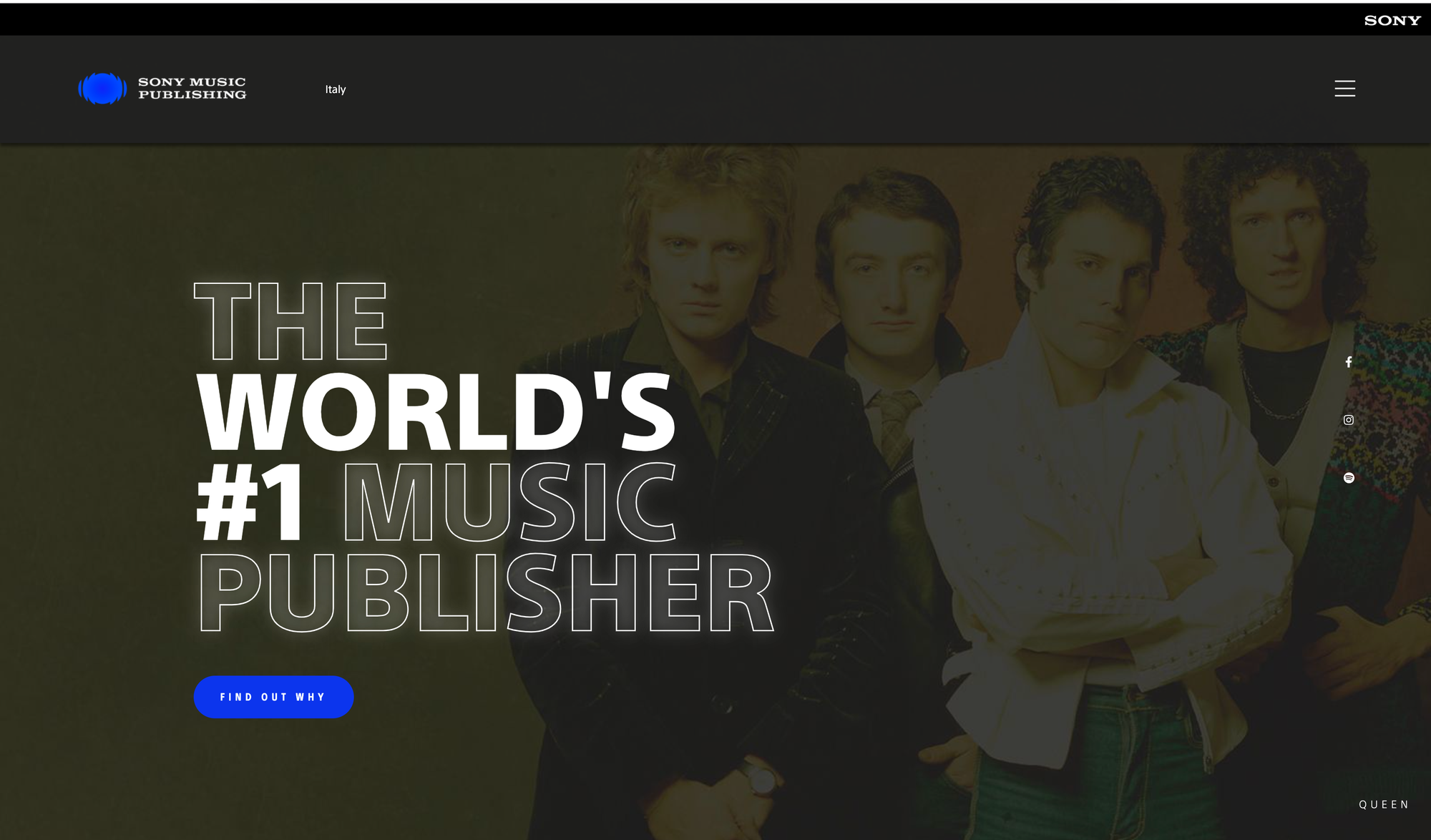
2. Universal Music Publishing Group (UMPG)
UMPG is another publishing giant, working with artists like SZA, Rosalía, Billie Eilish, and Elton John. They offer full-service global publishing, with a strong focus on sync opportunities and international reach.
UMPG’s broad network gives songwriters a chance to get their music placed in commercials, TV shows, and blockbuster films. Their team is known for being hands-on and artist-friendly despite being part of a major label group.
Best for: Artists looking for global exposure and sync licensing deals.
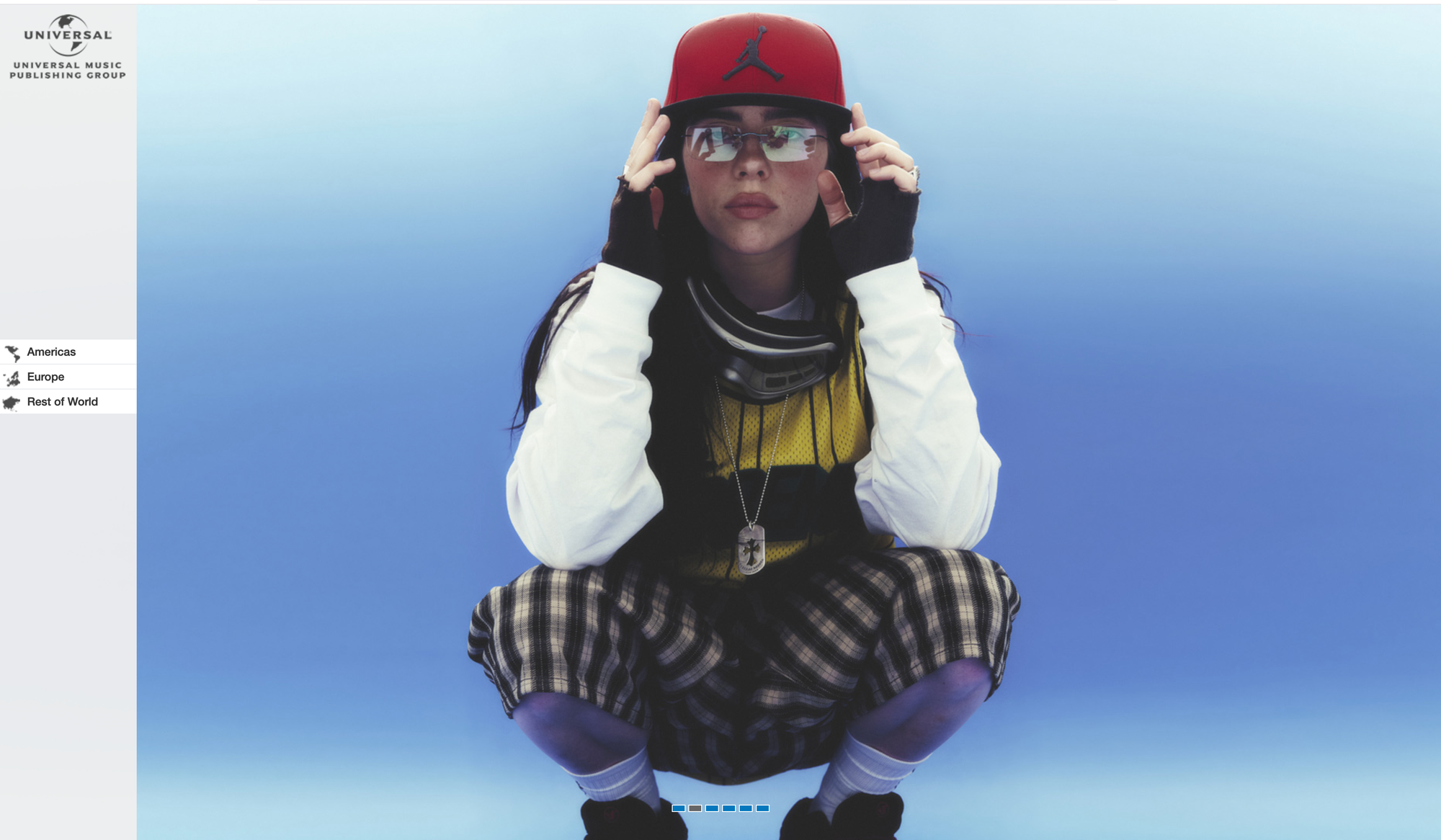
3. Warner Chappell Music
Warner Chappell is the publishing arm of Warner Music Group and represents over 1 million works. Their catalog includes artists like Dua Lipa, Cardi B, and Bruno Mars.
They’re known for their personalized creative services and a highly active sync team that places songs in everything from Netflix series to Super Bowl ads. For artists who want a mix of major-label support with some flexibility, Warner Chappell is a strong contender.
Best for: Artists seeking strong creative partnerships and sync deals.
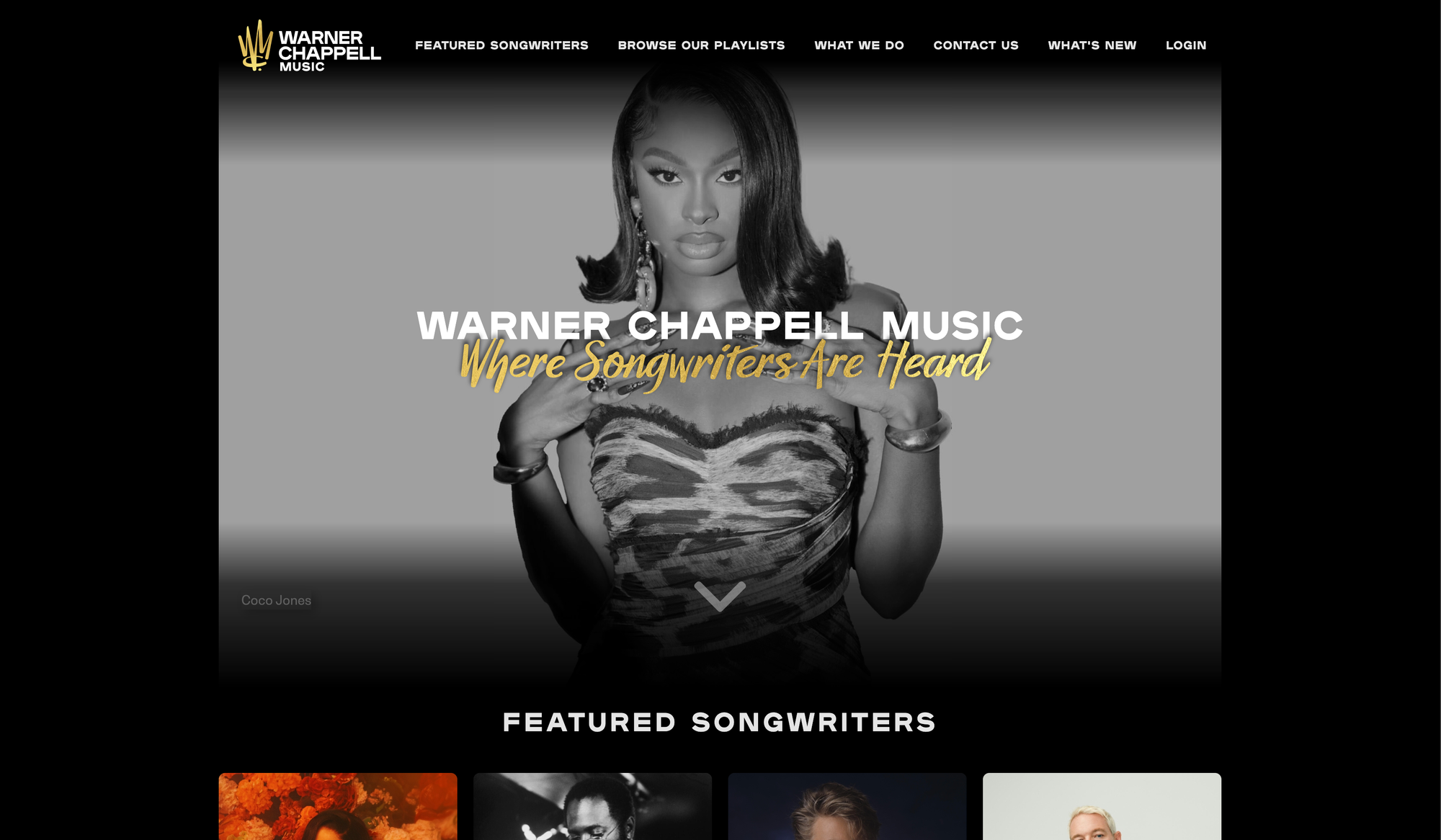
4. Kobalt Music Group
Kobalt revolutionized the publishing space by offering full transparency, digital tracking, and fast royalty payments. They’ve developed advanced technology that allows artists to see where and how their songs are earning money in real time.
Representing acts like The Weeknd, Paul McCartney, and Childish Gambino, Kobalt provides administrative services and sync licensing without taking ownership of your songs.
Best for: Independent artists who value transparency, data, and control.
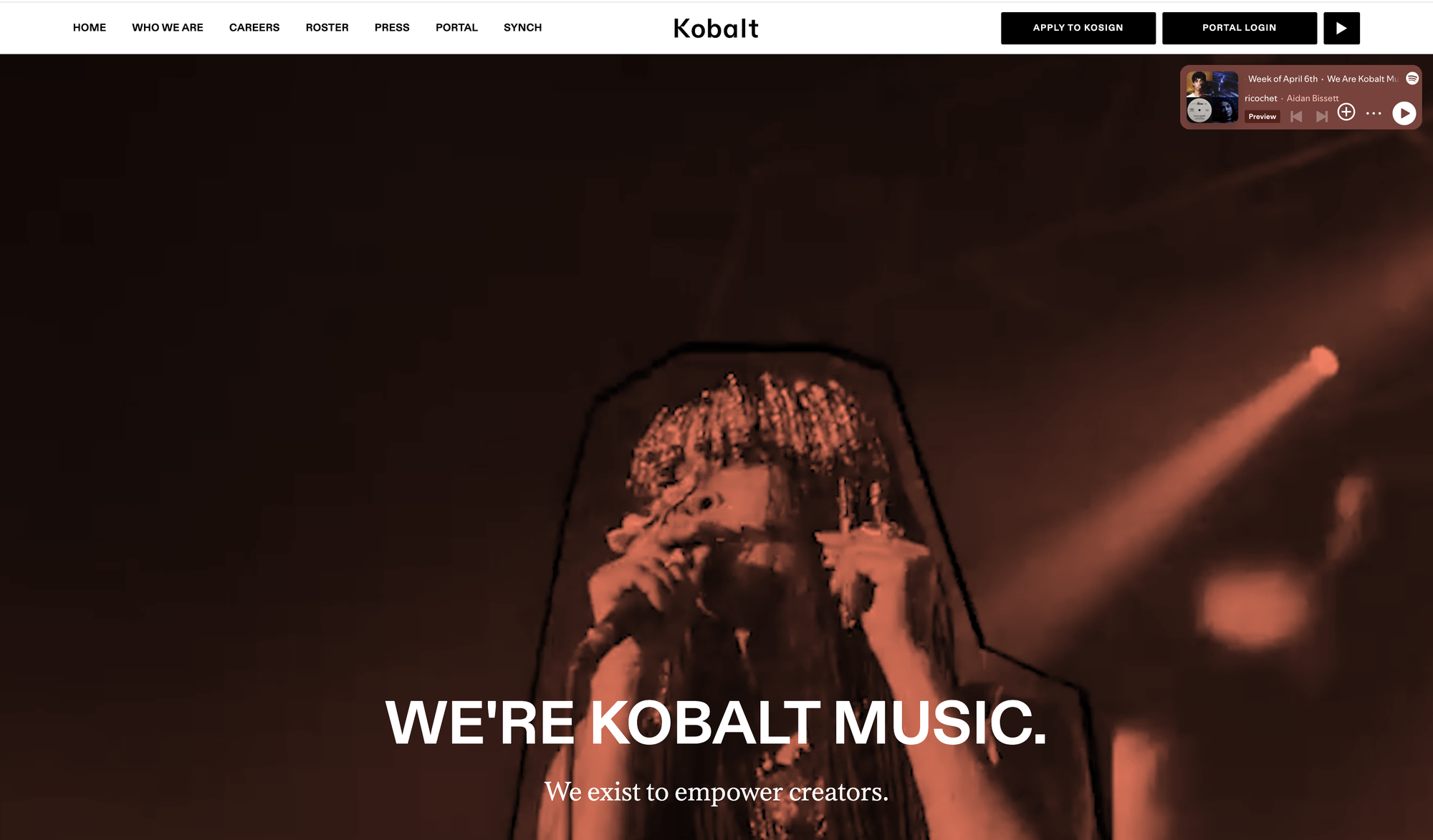
5. BMG Rights Management
BMG relaunched in 2008 with a modern and artist-first approach. They operate on the principle of fairness, transparency, and simplicity. BMG is known for offering straightforward contracts and powerful sync licensing opportunities.
With a growing catalog that includes both legends and emerging talent, BMG provides a great balance between major infrastructure and independent values.
Best for: Artists who want a global publisher with a fair contract structure.
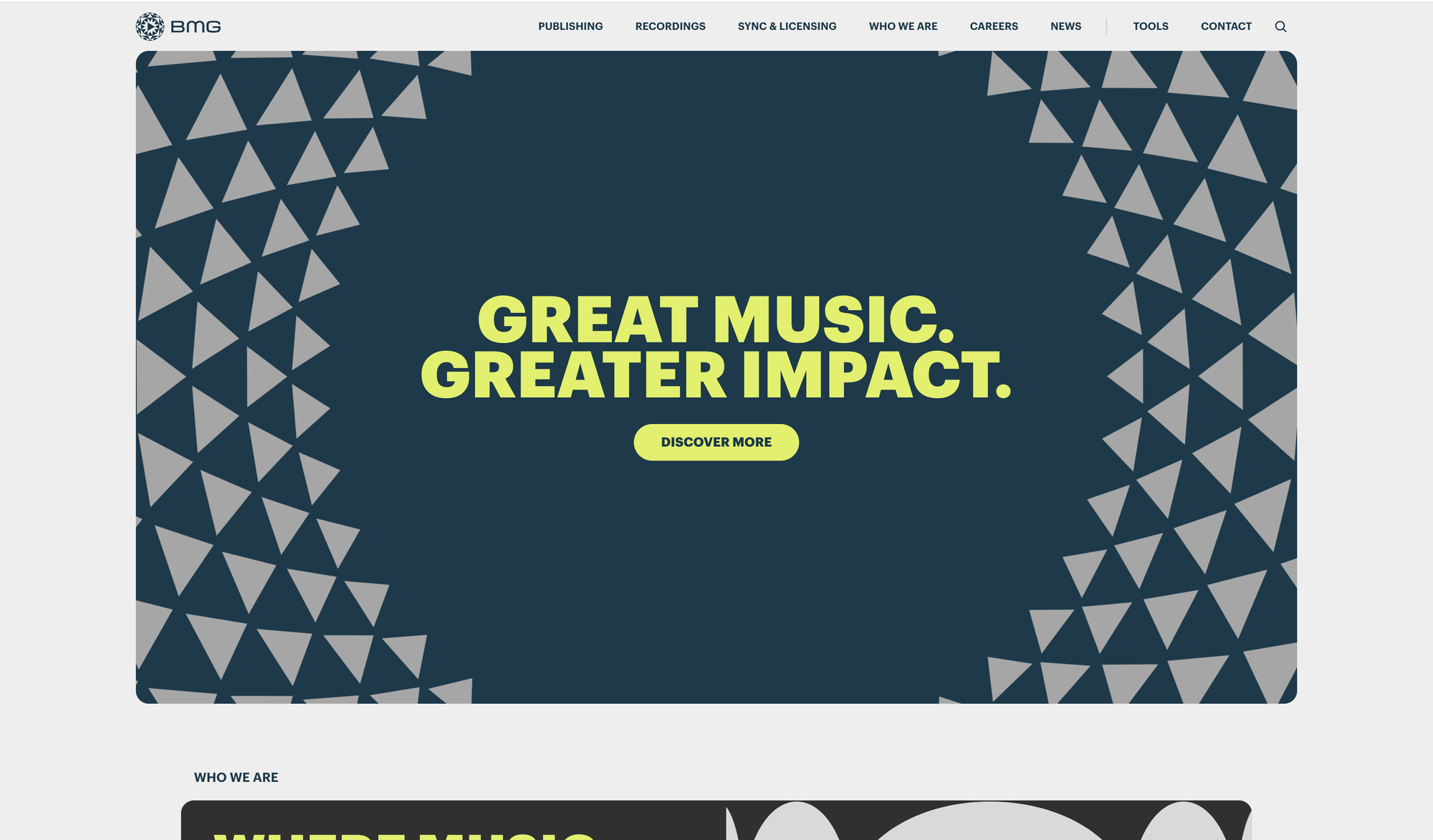
6. Concord Music Publishing
Concord represents over 390,000 copyrighted works, with a diverse catalog that spans Broadway, rock, pop, jazz, and classical. They work with artists like St. Vincent, Phil Collins, and Nine Inch Nails.
One of Concord’s strongest areas is sync licensing. They’ve placed songs in major shows and films and are known for valuing songwriters of all genres.
Best for: Songwriters looking for sync licensing and support in niche genres.
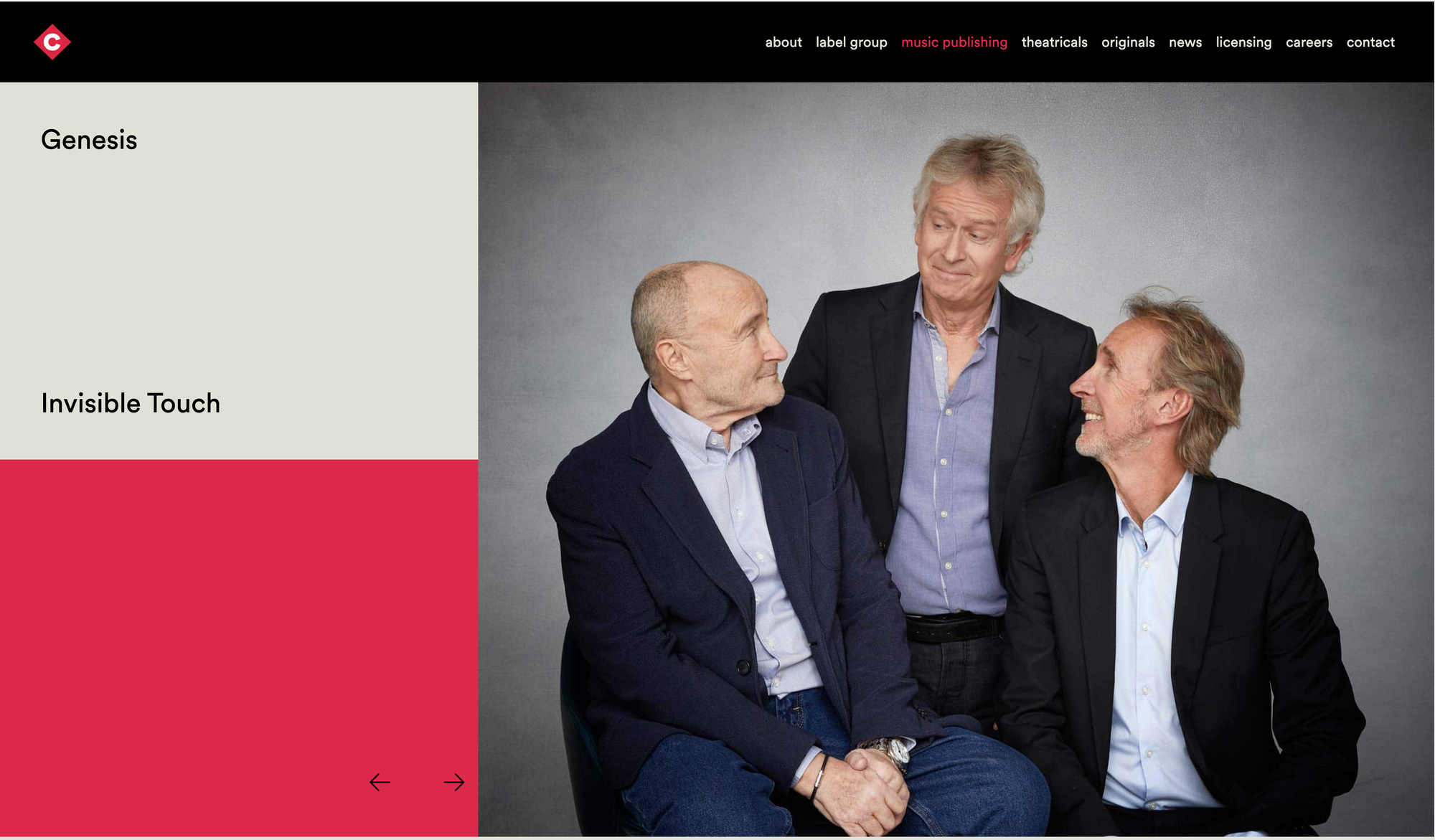
7. Downtown Music Publishing
Downtown has built a name as an artist-friendly company that supports creators at all stages. They offer publishing administration, sync services, and distribution through partners like CD Baby and Songtrust.
Downtown is especially popular among indie musicians and producers because of its straightforward deals and supportive infrastructure.
Best for: Indie artists and self-managed songwriters looking for admin help and sync opportunities.
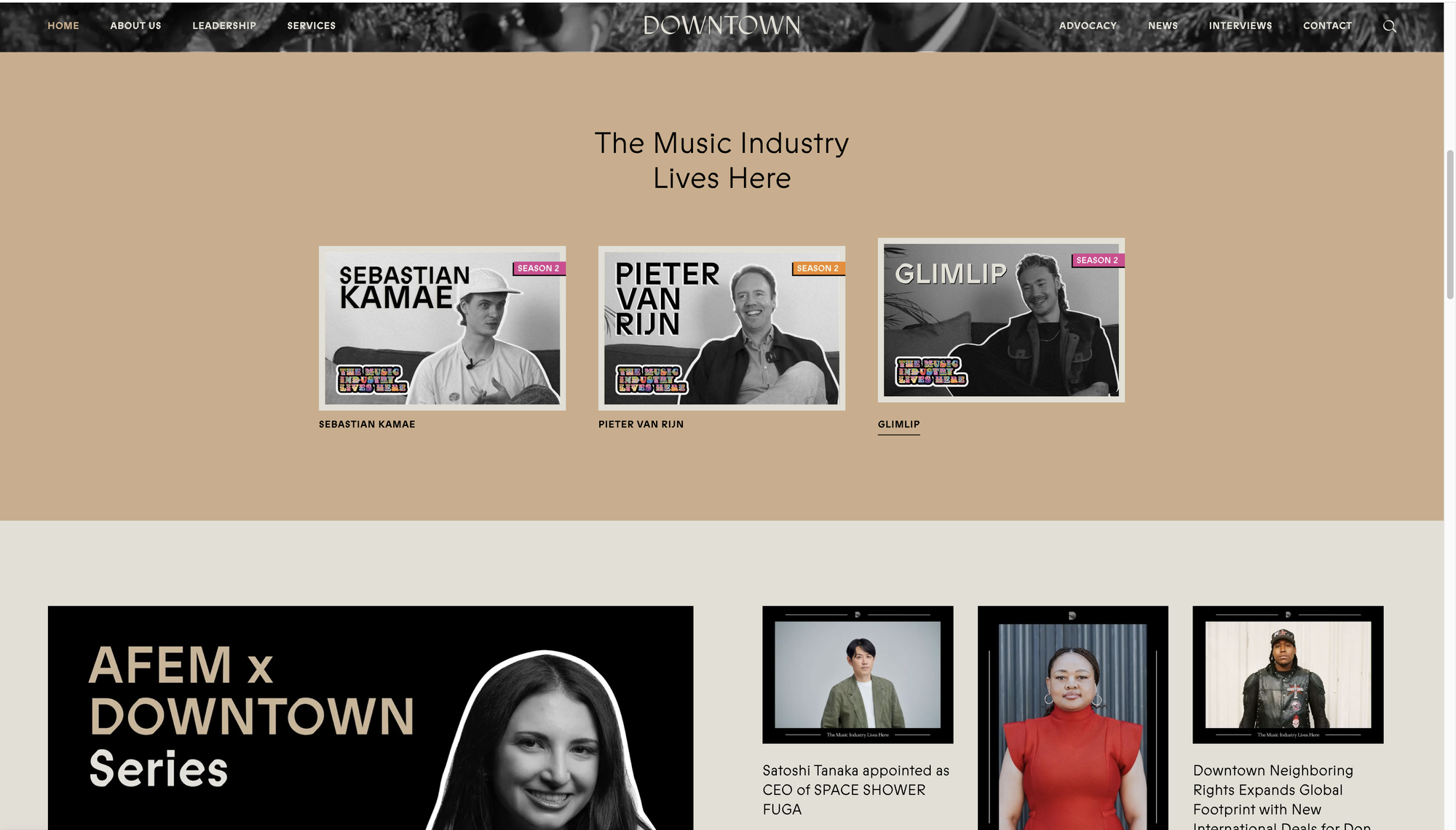
8. Wixen Music Publishing
Wixen is a boutique, independent music publisher with a reputation for fighting hard for its clients. They represent legends like Tom Petty, Neil Young, and Missy Elliott.
Unlike many other publishers, Wixen allows artists to retain full copyright ownership and typically charges only 10–15% commissions. They’re selective but fiercely loyal.
Best for: Veteran artists and songwriters who want maximum control.
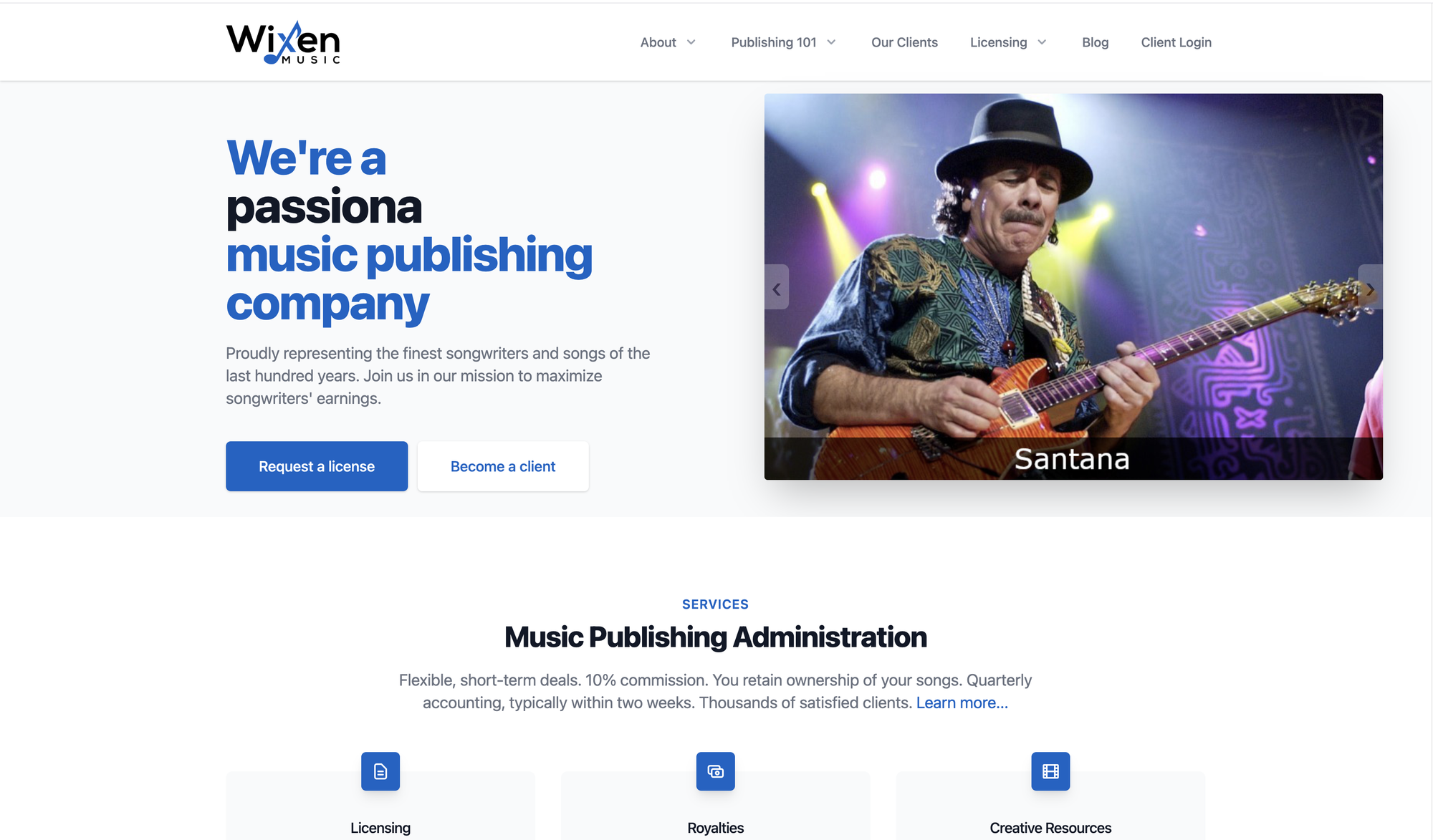
9. Reservoir Media
Reservoir is a rising star in the publishing world. They manage catalogs for artists like Lady Gaga, John Denver, and A Boogie wit da Hoodie. They focus heavily on sync licensing and have strong relationships with music supervisors.
Reservoir is ideal for creators who want personalized service and a team that actively works to get their music heard.
Best for: Up-and-coming artists ready for high-level sync opportunities.
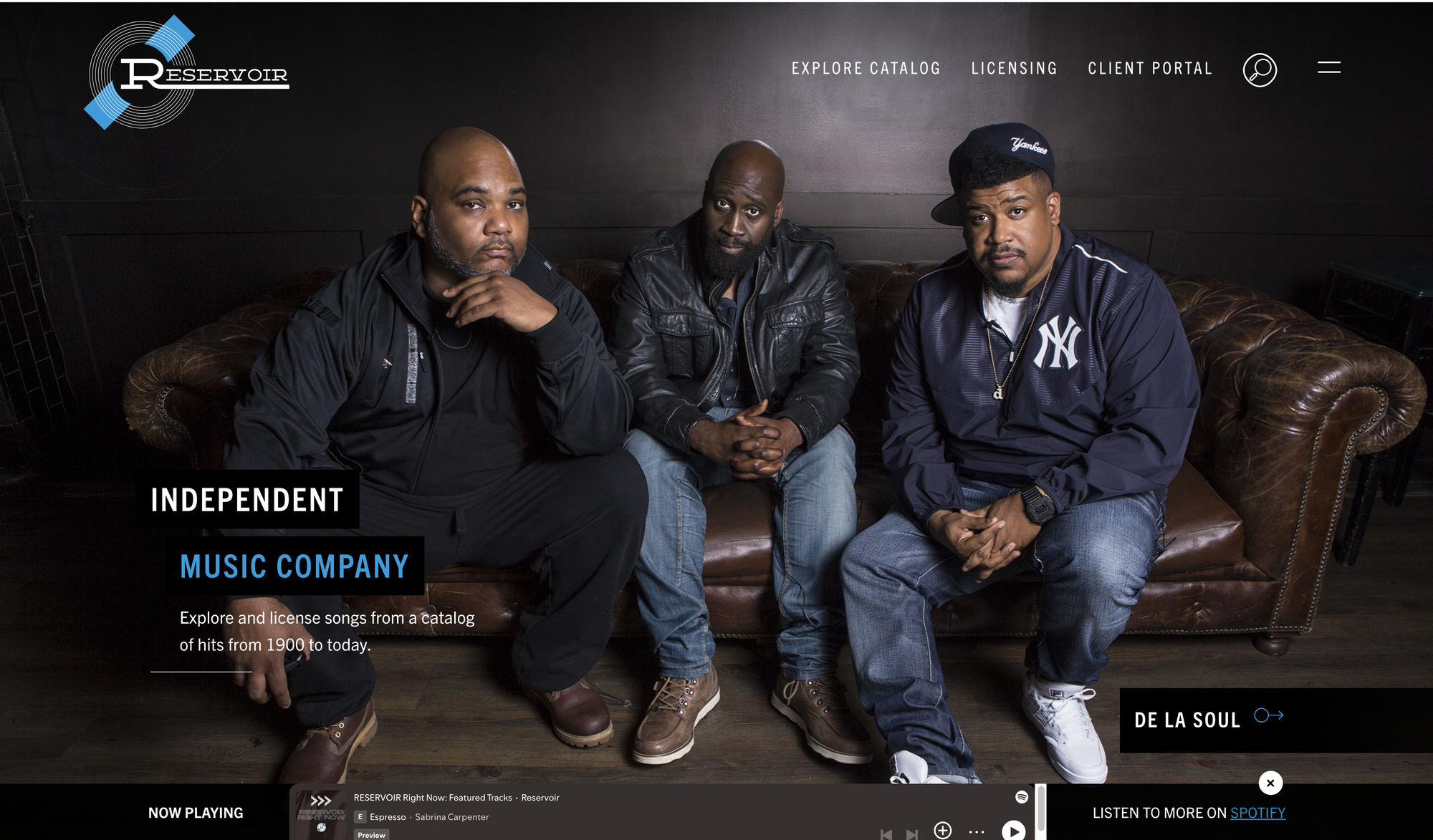
Matchfy
Matchfy is a revolutionary option for artists looking to simplify the distribution process while focusing on the organic promotion of their music. Distribution via Matchfy is completely free for registered users, removing financial barriers and allowing artists to allocate their budget to other activities.
Additionally, unlike other distribution services, tracks will remain on streaming platforms even if you discontinue your subscription, ensuring longevity.
Best for: Emerging and independent artists seeking an affordable, effective, and comprehensive solution for distributing and promoting their music.
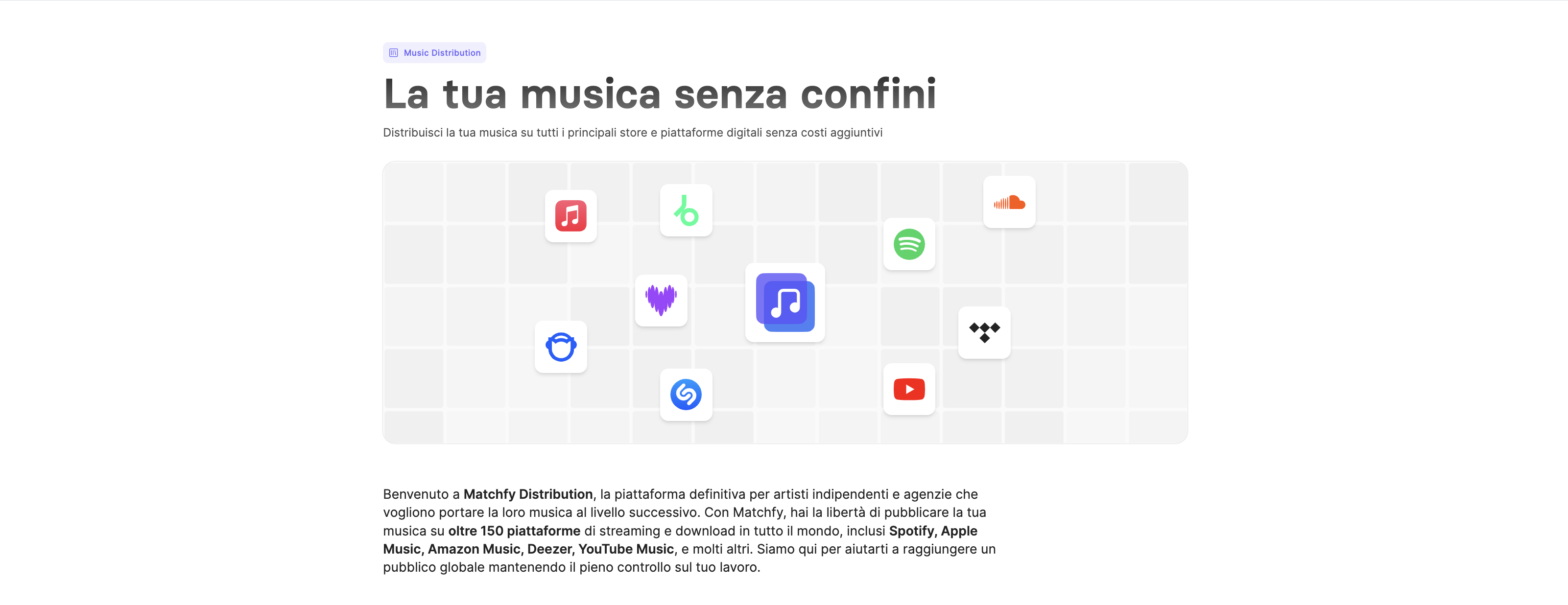
How to choose the right music publishing company
There’s no one-size-fits-all answer. When considering a publisher, think about:
- Your career stage: Are you starting out or already generating revenue?
- Your goals: Do you want sync placements, admin help, or creative development?
- Contract terms: Always read the fine print—retaining ownership is key.
- Communication: Look for a publisher that keeps you in the loop and advocates for your music.
Finding the right music publisher for your career
Choosing the right music publishing company can be a pivotal moment in your journey as a songwriter or producer. Whether you're just starting out or already have an established catalog, partnering with a publisher that aligns with your goals, values, and creative vision is key to building a sustainable music career.
From global powerhouses like Sony Music Publishing and Universal Music Publishing Group to independent-focused firms like Kobalt, Downtown, and Matchfy, the options are diverse. Some publishers shine in sync licensing and commercial placements, while others offer transparent royalty management or a more boutique, personalized experience.
What matters most is that your publishing partner supports your growth, respects your creative ownership, and actively works to get your music heard. Before signing any deal, take the time to research, ask questions, and understand the long-term impact on your rights and income.
